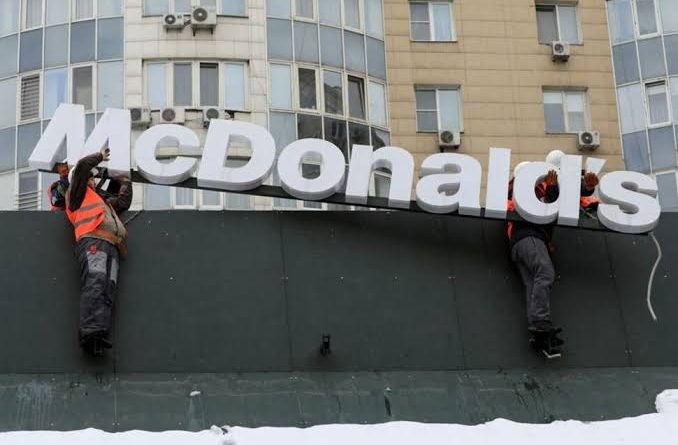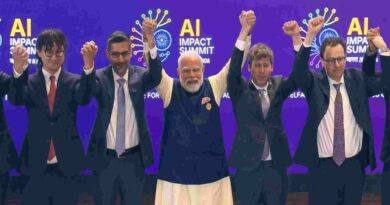Russia-Ukraine War: McDonald’s Shuts Operations In Kazakhstan Over Supply Shortage
The operator of McDonald’s in Kazakhstan, Food Solutions KZ, announced it will reopen its locations under a new name.
McDonald’s has shut down its locations in Kazakhstan due to supply issues, as per a report in the BBC. Although the fast food chain has not explained the reason for the shortage, it is assumed that supply problems triggered by Russia’s invasion of Ukraine are to be blamed.
It is said that McDonald’s has forbidden its local franchisee from buying hamburgers from Russian suppliers. The operator of the chain in Kazakhstan, Food Solutions KZ, announced it will reopen its locations under a new name, the report further mentions.
Workers could be seen removing the enormous white lettering on one of the branches in Almaty, the largest city. After severing links with Russian businesses and running out of supplies, the company’s licensee in Kazakhstan was forced to temporarily close its restaurants in November, according to Reuters. However, they now appear to have permanently shut down.
“The chain of fast-service restaurants managed by Food Solutions KZ LLP will stop working under the McDonald’s brand in Kazakhstan due to supply restrictions. The reopening of the company and the opening date of the quick service restaurants under the new name will be announced soon. We will answer all questions related to the company’s continued operations after this transition is completed,” McDonald’s Kazakhstan said in a statement on Instagram.
The fast-food chain added, “After the opening of the chain of restaurants, visitors will be offered high quality products, a varied menu and hospitable service. Fast food restaurants will continue to operate in accordance with the current high standards, values and business principles.”
Food Solutions KZ’s Head, Aset Mashanov, in a meeting with the government in December, said that efforts were being made to source meat products locally in order to restart its operations as soon as possible. He also mentioned that it would be challenging to import produce from other countries if customs clearance and other bureaucratic hurdles were not removed, the BBC added.




